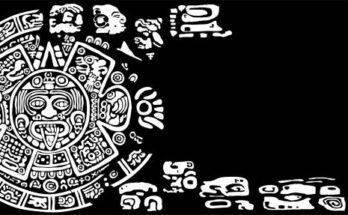Religion, as a deeply personal and subjective experience, has garnered significant attention from social psychologists seeking to unravel its complexities. In their revised edition of “A Social-Psychological Perspective,” Batson, Schoenrade, and Ventis employ social psychology methods to explore the personal perspective of religious experience. By adopting a scientific approach, they aim to describe, analyse, and understand religion in a manner that transcends institutional boundaries.
Despite its importance in the development of communities and cross-cultural interactions, psychology texts mostly ignore religion. Globally, the patterns in modern religion are evolving quickly. For instance, fewer people are practising conventional religions; atheism and secular beliefs are growing more prevalent and respectable. Acts of terror are frequently thought to have religious undertones. The article concludes with suggestions for measuring this complicated variable and a discussion of the difficulties facing this field going forward.
Sources of Personal Religion
-
Social Sources of Personal Religion
 (Photo from iStock)
(Photo from iStock)
One of the fundamental aspects of personal religion is its social foundation. Human beings are inherently social creatures, and our beliefs and values are often shaped by the society we inhabit. Batson et al. delve into the social sources of personal religion, examining how cultural, familial, and community influences contribute to the development of individual religious beliefs. By understanding the social roots of personal religion, we gain insights into the diverse ways in which religious experiences manifest.
-
Individual Development and Personal Religion
 (Photo from iStock)
(Photo from iStock)
Another crucial factor in the formation of personal religion is individual development. As individuals grow and navigate their lives, their religious beliefs and practices evolve. Batson et al. explore the intricate relationship between personal development and religious experience, shedding light on how personal growth and transformation intersect with an individual’s religious journey. Especially, by examining the interplay between individual development and personal religion, we gain a deeper understanding of the dynamic nature of religious experiences.
Nature of Personal Religion
-
Religious Experience and Personal Transformation
 (Photo from iStock)
(Photo from iStock)
Religious experiences have the power to profoundly transform individuals, and this aspect of personal religion is a central focus of Batson et al.’s work. They delve into the various types of religious experiences individuals may encounter, ranging from moments of transcendence to encounters with the divine. By examining the transformative power of religious experiences, we gain insight into the profound impact religion can have on an individual’s sense of self and purpose.
-
Facilitators of Religious Experience
 (Photo from iStock)
(Photo from iStock)
Music and language have long been recognized as powerful tools that facilitate religious experiences. Batson et al. dedicate a section of their book to exploring the role of music and language in enhancing religious experiences. By examining the ways in which music and language are intertwined with religious practices. Despite, we gain a deeper understanding of how these cultural elements contribute to the richness of personal religious experiences.
-
Dimensions of Personal Religion
 (Photo from iStock)
(Photo from iStock)
To comprehensively analyse personal religion, Batson et al. present their three-dimensional model for assessing personal religion. This model considers personal religion as a means, an end, and a quest, providing a holistic framework for understanding the multifaceted nature of religious experiences. Since, exploring the dimensions of personal religion, we gain insights into the various motivations and aspirations that drive individuals in their religious pursuits.
Consequences of Personal Religion
-
Personal Freedom or Bandage?
 (Photo from iStock)
(Photo from iStock)
The concept of personal freedom is often intertwined with religious experiences. Batson et al. explore the relationship between personal religion and individual freedom, delving into how personal religious beliefs and practices can either liberate individuals or serve as constraints. Altogether, by understanding the potential for personal freedom or bandage within religious experiences. Correspondingly, gain a nuanced perspective on the impact of religion on individual autonomy.
-
Mental Health or Sickness
 (Photo from iStock)
(Photo from iStock)
The connection between personal religion and mental health has been a subject of considerable debate. Batson et al. present a comprehensive analysis of the relationship between personal religion and mental well-being. Considering both the positive and negative implications. Specifically, by examining the evidence, we gain insights into the complex interplay between personal religion and psychological well-being.
-
Brothers-and-Sisters or Sheep-and-Goats
 (Photo from iStock)
(Photo from iStock)
Religion has the power to shape social dynamics, either fostering a sense of unity or perpetuating divisions. Batson et al. explore how personal religion influences individuals’ perceptions of others. Furthermore, examining the potential for religious beliefs to promote inclusivity or exclusivity. By understanding the social consequences of personal religion. We gain valuable insights into the role of religion in shaping interpersonal relationships.
-
Concern for Others or Self-Concern
 (Photo from iStock)
(Photo from iStock)
One of the central tenets of many religious traditions is the emphasis on concern and care for others. Batson et al. delve into the relationship between personal religion and altruism. Further, exploring how religious beliefs and practices influence individuals’ propensity to prioritize the well-being of others over self-concern. By examining the impact of personal religion on concern for others. We gain insights into the moral dimensions of religious experiences and social psychology.
Implications
-
Is Religion on Our Side?
In the concluding chapter, Batson et al. address the implications of their research and analysis. They delve into the question of whether religion is on the side of progress. Examining the potential contributions and drawbacks of personal religion in contemporary society. Moreover, by critically evaluating the implications of personal religion. We gain a deeper understanding of its role in shaping individuals and communities.
In conclusion, a social-psychological perspective on religious experience offers valuable insights into the personal dimension of religion. By exploring the social sources, nature, consequences, and implications of personal religion. We gain a comprehensive understanding of this complex and deeply personal aspect of human experience. Evidently, Batson et al.’s work serves as a thought-provoking exploration of the intersection between social psychology and religion. Challenging and enlightening students of social psychology, sociology, and religious studies. This article helps a better understanding of religion from perspective of social psychology.




